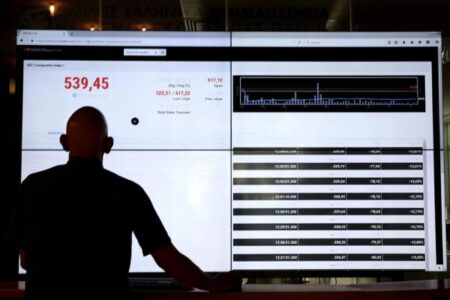UK officials said Monday that the country would suspend the export of some arms to Israel.
The decision by the key Israeli ally marked one of the latest signs that some members of the international community were contemplating pulling back military support for the country. It came days after Israel said it recovered the bodies of six hostages, whom the country said had been killed by Hamas in a tunnel in Gaza. The news of their deaths magnified the urgency for both sides to reach a cease-fire.
In explaining its decision, British Foreign Secretary David Lammy cited a “clear risk” that some weapons could be used by Israel to “commit or facilitate a serious violation of international humanitarian law,” according to a video posted to the UK’s Parliament website.
Lammy added that the decision would impact roughly 30 of 350 export licenses for equipment including parts for planes, helicopters, and drones. According to Sam Perlo-Freeman, a research coordinator for the group Campaign Against Arms Trade, the step is “a belated, but welcome move,” the AP reported. But Perlo-Freeman said it was nevertheless “outrageous and unjustifiable” that F-35 fighter jet materials did not appear to have been suspended as well.
On Monday, Israeli Defense Minister Yoav Gallant posted on the social-media platform X that he was “deeply disheartened” by the UK’s decision to impose sanctions on the export licenses for weapons and equipment.
“This comes at a time when we fight a war on 7 different fronts – a war that was launched by a savage terrorist organization, unprovoked,” Gallant wrote. “At a time when we mourn 6 hostages who were executed in cold blood by Hamas inside tunnels in Gaza. At a time when we fight to bring 101 hostages home.”
Globally, pressure mounted as the week began for Israel to reach a deal. US President Joe Biden said on Monday that he did not believe that Israeli Prime Minister Benjamin Netanyahu had done enough to secure a cease-fire with Hamas.
Meanwhile, inside Israel, widespread protests and nationwide labor stoppages erupted following the news of the hostages’ deaths. Hundreds of thousands of protestors pressured Netanyahu’s government throughout the weekend to reach an accord with Hamas that would enable the remaining hostages to come home alive.
“It’s a mix of grief and anger,” Niv Keidar, a protestor, told Business Insider after helping block a major intercity highway in Tel Aviv on Sunday night. “There must be a deal that will bring back alive those people that are still possible to rescue.”
The impact of the UK’s decision
Since the war between Israel and Hamas broke out on October 7 — when roughly 1,200 Israeli citizens were killed during attacks by Hamas fighters — more than 40,000 Palestinians have died amid Israel’s retaliatory efforts, according to the Gaza Health Ministry. The International Rescue Committee says that roughly 75% of the Gazan population has been displaced.
Israel’s push into Gaza and strikes on Hamas-controlled territory have sparked international condemnation for their effects on civilians, and contributed to heightened regional tensions with groups including Iran and their proxy in Lebanon, Hezbollah.
Though the consequences of the UK’s decision on the wider war may ultimately be limited, its impact may hold more symbolic weight on the geopolitical stage. Josh Paul, a senior advisor for the nonprofit organization Democracy for the Arab World Now, said in an emailed statement to BI on Monday that the action by the UK marked a “critical step” in holding Israel “accountable.”
“With the UK finally recognizing its responsibilities under international humanitarian law, the US is becoming increasingly isolated in its unwillingness to do the same,” Paul added. (DAWN, which was founded in 2018 by the late Saudi journalist Jamal Khashoggi, supports democracy and human-rights efforts throughout the Middle East and North Africa.)
Still, Netanyahu appeared undeterred on Monday, refusing to budge on a key point that has thwarted cease-fire efforts so far: the presence of Israeli troops in the Philadelphi corridor, a strip of land along the border which Gaza shares with Egypt. Netanyahu has said that withdrawing troops from the area is off the table — a decision that stands to protract the fighting.
“The axis of evil needs the Philadelphi corridor, and for that reason, we must control the Philadelphi corridor,” Netanyahu said during a press conference. “Hamas insists for that reason that we not be there, and for that reason, I insist that we be there.”
Read the full article here
















